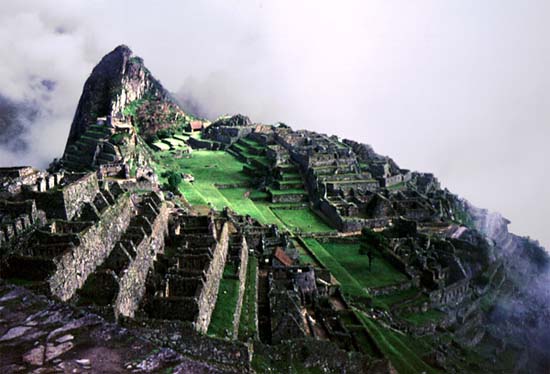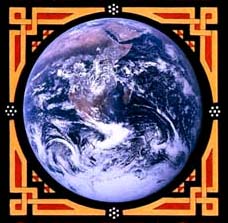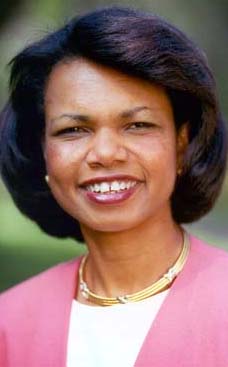2006.03.14: March 14, 2006: Headlines: Archeology: Figures: COS - Peru: Politics: Museums: Hartford Courant: Elaine Karp and her husband, Peruvian President Alejandro Toledo, have used their visit to Washington, D.C., to keep Peru's dispute with Yale in the public eye
Peace Corps Online:
Directory:
Peru:
Friend of the Peace Corps: Alejandro Toledo :
Special Report: President Alejandro Toledo:
2006.03.14: March 14, 2006: Headlines: Archeology: Figures: COS - Peru: Politics: Museums: Hartford Courant: Elaine Karp and her husband, Peruvian President Alejandro Toledo, have used their visit to Washington, D.C., to keep Peru's dispute with Yale in the public eye
Elaine Karp and her husband, Peruvian President Alejandro Toledo, have used their visit to Washington, D.C., to keep Peru's dispute with Yale in the public eye

Toledo discussed the artifacts with President Bush during a working lunch Friday. Though Toledo has flown home to Peru, his wife, a cultural anthropologist, is keeping the pressure on. Karp will meet first lady Laura Bush this morning to tour the National Museum of Women in the Arts - where artifacts currently on loan from Peru, as it so happens, are on display. President Alejandro Toledo of Peru was a language instructor for the Peace Corps in the 1960's. In 2002, Toledo invited the Peace Corps to return to Peru after a 27 year absence.
Elaine Karp and her husband, Peruvian President Alejandro Toledo, have used their visit to Washington, D.C., to keep Peru's dispute with Yale in the public eye
Peru Presses Yale On Relics
Nation's First Lady Keeps Issue In Public Eye
March 14, 2006
By KIM MARTINEAU, Courant Staff Writer
Machu Picchu is more than a symbol of the past. It has become a thriving tourist attraction that Peru wants to capitalize on to improve the life of its people.
That's hard to do when some of Machu Picchu's most important relics are sitting in a museum in another hemisphere. Artifacts that a Yale professor unearthed there more than 90 years ago are now on display at Yale's Peabody Museum. Peru's first lady has accused Yale of profiting from Peru's cultural heritage.
"This is ours," first lady Eliane Karp said Monday. "There is no more colonialism in the 21st century."
Karp and her husband, Peruvian President Alejandro Toledo, have used their visit to Washington, D.C., to keep Peru's dispute with Yale in the public eye. Toledo discussed the artifacts with President Bush during a working lunch Friday. Though Toledo has flown home to Peru, his wife, a cultural anthropologist, is keeping the pressure on. Karp will meet first lady Laura Bush this morning to tour the National Museum of Women in the Arts - where artifacts currently on loan from Peru, as it so happens, are on display.
Yale Professor Hiram Bingham stumbled on the stone ruins of Machu Picchu in 1911, while bushwhacking his way through the Andean mountains. Once a vacation retreat for Incan royalty, the site had languished for centuries.
On two later expeditions, Bingham dug up dozens of burial caves, finding ceramic vases, jewelry and other artifacts.
The government of Peru signed two "executive decrees" allowing Bingham to ship the artifacts home as long as they were returned.
Some of the material was returned but Yale has kept the rest, claiming title to more than 250 museum-quality pieces under an earlier Peruvian law. Yale has buttressed its position by federal case law involving Peruvian antiquities.
Since November, Peru has been threatening to sue. Yale has offered to collaborate and show the material in both countries. But Peru has refused any deal that does not acknowledge Peruvian title.
The National Geographic Society, which helped fund Bingham's expeditions, says the material clearly belongs to Peru and should be returned.
Yale, for its part, says its Machu Picchu exhibit is not the cash cow Peru may think. "Preserving, restoring and researching the collection over many decades at Yale has cost money," said Tom Conroy, a university spokesman. "The same has been true of creating and mounting the exhibition. Yale resources had to be secured and grants had to be found...It has not been a profitable exhibit - nor was that the design."
Short of inspecting the Peabody's balance sheet, many Peruvians may be unwilling to take Yale's word. The artifacts are also a symbol of national identity and a bridge to a time before the Spanish conquerors.
"Machu Picchu is the main symbol of Peru," Karp said. "It is something the Peruvian people relate to as the pride of their ancestors and their past."
Peru's modern history has been marred by civil war and allegations of corruption that have continued through Toledo's administration.
The son of a bricklayer, Toledo was born in the Andean mountains, raised in a coastal fishing village and came to the U.S. to study with the aid of two Peace Corps volunteers, according to a 2001 profile in Stanford Magazine.
Toledo put himself through college with the help of a soccer scholarship and later earned a doctorate from Stanford University. There he met his wife Karp, a Belgian-born Jew who was raised in France. She shared Toledo's interest in Indian culture and went on to learn Quechua, the official language of Tawantinsuyu, the Inca Empire, while doing field work near Machu Picchu, in Cuzco.
They divorced but remarried in 2000, a year before Toledo took office after becoming the first Peruvian of Amerindian descent to be elected president of the country. Toledo's term is up at the end of July and by law, he must step down. Karp has accused Yale of stalling.
"They've pushed it and pushed it, hoping the problem will go away with President Toledo," she said. "They should forget about it...It's very important for Yale to know the problem isn't going away."
The conflict has drawn the notice of Yale's most highly placed alumni, who include Bush.
Karp has been criticized at home for being an outspoken first lady. But on the issue of repatriating Peru's artifacts, she said, no one at home has complained. "Machu Picchu is just about the greatest thing Peru has," she said.
When this story was posted in March 2006, this was on the front page of PCOL:





Peace Corps Online The Independent News Forum serving Returned Peace Corps Volunteers
 | History of the Peace Corps
PCOL is proud to announce that Phase One of the "History of the Peace Corps" is now available online. This installment includes over 5,000 pages of primary source documents from the archives of the Peace Corps including every issue of "Peace Corps News," "Peace Corps Times," "Peace Corps Volunteer," "Action Update," and every annual report of the Peace Corps to Congress since 1961. "Ask Not" is an ongoing project. Read how you can help. |
 | The Peace Corps Library
The Peace Corps Library is now available online with over 40,000 index entries in 500 categories. Looking for a Returned Volunteer? Check our RPCV Directory. New: Sign up to receive PCOL Magazine, our free Monthly Magazine by email. Like to keep up with Peace Corps news as it happens? Sign up to recieve a daily summary of Peace Corps stories from around the world. |
 | Peace Corps suspends program in Bangladesh
Peace Corps Director Gaddi H. Vasquez announced the suspension of the Peace Corps program in Bangladesh on March 15. The safety and security of volunteers is the number one priority of the Peace Corps. Therefore, all Peace Corps volunteers serving in Bangladesh have safely left the country. More than 280 Peace Corps volunteers have served in Bangladesh since the program opened in November 1998. Latest: What other newspapers say. |
 | Invitee re-assigned after inflammatory remarks
The Peace Corps has pulled the invitation to Derek Volkart to join the Morocco Training Program and offered him a position in the Pacific instead after officials read an article in which he stated that his decision to join the Peace Corps was in "response to our current fascist government." RPCV Lew Nash says that "If Derek Volkart spoke his mind as freely in Morocco about the Moroccan monarchy it could cause major problems for himself and other Peace Corps volunteers." Latest: The Ashland Daily Tidings has issued a request for all Peace Corps communications on the case. |
 | Re-envision Peace Corps
Nicholas J. Slabbert says in his article in the Harvard International Review that an imaginatively reinvented Peace Corps could powerfully promote US interests in a period when perceptions of American motives are increasingly relevant to global realignment. His study envisions a new role for the Peace Corps in five linked areas: (1) reinventing America's international profile via a new use of soft power; (2) moving from a war-defined, non-technological, reactive theory of peace to a theory of peace as a normal, proactive component of technologically advanced democracy; (3) reappraising Peace Corps as a national strategic asset whose value remains largely untapped; (4) Peace Corps as a model for the technological reinvention of government agencies for the 21st century; (5) redefining civil society as information technology society. Read the article and leave your comments. |
 | March 1, 1961: Keeping Kennedy's Promise
On March 1, 1961, President John F. Kennedy issues Executive Order #10924, establishing the Peace Corps as a new agency: "Life in the Peace Corps will not be easy. There will be no salary and allowances will be at a level sufficient only to maintain health and meet basic needs. Men and women will be expected to work and live alongside the nationals of the country in which they are stationed--doing the same work, eating the same food, talking the same language. But if the life will not be easy, it will be rich and satisfying. For every young American who participates in the Peace Corps--who works in a foreign land--will know that he or she is sharing in the great common task of bringing to man that decent way of life which is the foundation of freedom and a condition of peace. " |
 | Paid Vacations in the Third World?
Retired diplomat Peter Rice has written a letter to the Wall Street Journal stating that Peace Corps "is really just a U.S. government program for paid vacations in the Third World." Director Vasquez has responded that "the small stipend volunteers receive during their two years of service is more than returned in the understanding fostered in communities throughout the world and here at home." What do RPCVs think? |
 | RPCV admits to abuse while in Peace Corps
Timothy Ronald Obert has pleaded guilty to sexually abusing a minor in Costa Rica while serving there as a Peace Corps volunteer. "The Peace Corps has a zero tolerance policy for misconduct that violates the law or standards of conduct established by the Peace Corps," said Peace Corps Director Gaddi H. Vasquez. Could inadequate screening have been partly to blame? Mr. Obert's resume, which he had submitted to the Peace Corps in support of his application to become a Peace Corps Volunteer, showed that he had repeatedly sought and obtained positions working with underprivileged children. Read what RPCVs have to say about this case. |
 | Why blurring the lines puts PCVs in danger
When the National Call to Service legislation was amended to include Peace Corps in December of 2002, this country had not yet invaded Iraq and was not in prolonged military engagement in the Middle East, as it is now. Read the story of how one volunteer spent three years in captivity from 1976 to 1980 as the hostage of a insurrection group in Colombia in Joanne Marie Roll's op-ed on why this legislation may put soldier/PCVs in the same kind of danger. Latest: Read the ongoing dialog on the subject. |
 | Friends of the Peace Corps 170,000 strong
170,000 is a very special number for the RPCV community - it's the number of Volunteers who have served in the Peace Corps since 1961. It's also a number that is very special to us because March is the first month since our founding in January, 2001 that our readership has exceeded 170,000. And while we know that not everyone who comes to this site is an RPCV, they are all "Friends of the Peace Corps." Thanks everybody for making PCOL your source of news for the Returned Volunteer community. |
Read the stories and leave your comments.

Some postings on Peace Corps Online are provided to the individual members of this group without permission of the copyright owner for the non-profit purposes of criticism, comment, education, scholarship, and research under the "Fair Use" provisions of U.S. Government copyright laws and they may not be distributed further without permission of the copyright owner. Peace Corps Online does not vouch for the accuracy of the content of the postings, which is the sole responsibility of the copyright holder.
Story Source: Hartford Courant
This story has been posted in the following forums: : Headlines; Archeology; Figures; COS - Peru; Politics; Museums
PCOL32187
97


















